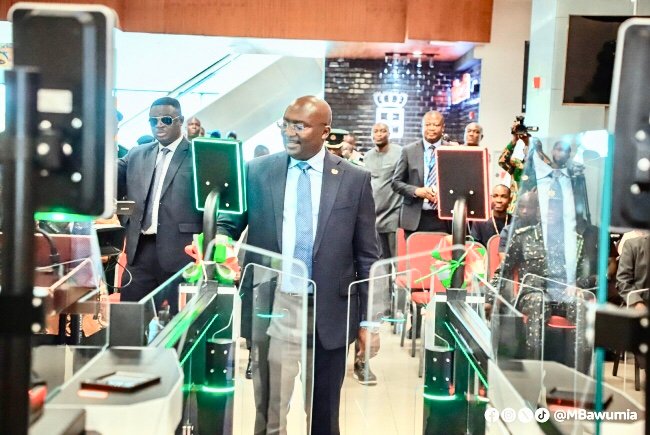Accra, Ghana – The Ghana Immigration Service (GIS) has issued a statement refuting claims that the newly installed E-Gates at the Kotoka International Airport (KIA) cost a whopping $240million. The GIS described the claims as “false and misleading,” and provided a detailed breakdown of the actual costs involved in the project.
According to the GIS, the E-Gates project was awarded to a contractor at a cost of $10.4million, which includes the supply, installation, and maintenance of the E-Gates system. The service also revealed that an additional $3.4million was spent on the construction of a data center and other infrastructure to support the E-Gates system.
The GIS stated that the total cost of the project, including all additional expenses, was $13.8million, which is significantly lower than the $240million claimed by some media outlets. The service expressed disappointment at the misinformation, which it said had caused unnecessary panic and speculation among the public.
The E-Gates system, which was launched in October, is designed to facilitate the processing of passengers at the KIA, reducing waiting times and improving the overall travel experience. The system uses advanced biometric technology to verify the identities of passengers, making it a key component of the airport’s security infrastructure.
The GIS assured the public that the E-Gates system is functioning effectively, and that passengers are experiencing reduced waiting times and improved service. The service also commended the contractor for delivering the project on time and within budget.
The controversy over the cost of the E-Gates project has sparked a wider debate about transparency and accountability in government procurement processes. Some critics have called for greater scrutiny of government contracts, to ensure that taxpayers are getting value for money.
In response to these concerns, the GIS has pledged to be more transparent in its procurement processes, and to provide regular updates on the status of its projects. The service has also invited the media and the public to visit the KIA to see the E-Gates system in operation, and to learn more about the project.
As the debate over the E-Gates project continues, one thing is clear: the GIS has set the record straight on the cost of the project, and has provided a detailed breakdown of the expenses involved. The service’s commitment to transparency and accountability is a welcome development, and it is hoped that other government agencies will follow its example.
In conclusion, the Ghana Immigration Service has refuted claims that the E-Gates at KIA cost $240million, providing a detailed breakdown of the actual costs involved in the project. The service’s commitment to transparency and accountability is a positive step, and it is hoped that the controversy over the E-Gates project will lead to greater scrutiny of government procurement processes in the future.
The E-Gates project is just one example of the many initiatives being implemented by the GIS to improve the travel experience at the KIA. The service is working to introduce new technologies and processes, to reduce waiting times and improve the overall efficiency of the airport.
As the KIA continues to expand and modernize, the GIS is playing a critical role in ensuring that the airport’s security infrastructure is up to date and effective. The E-Gates system is just one part of this effort, and it is hoped that the controversy over the project will not detract from the many benefits it has brought to passengers.
In the end, the GIS has demonstrated its commitment to transparency and accountability, and has provided a detailed breakdown of the costs involved in the E-Gates project. The service’s efforts to improve the travel experience at the KIA are commendable, and it is hoped that the controversy over the E-Gates project will lead to greater scrutiny of government procurement processes in the future.
Source: Africa Publicity








